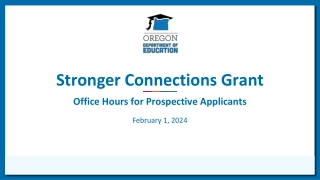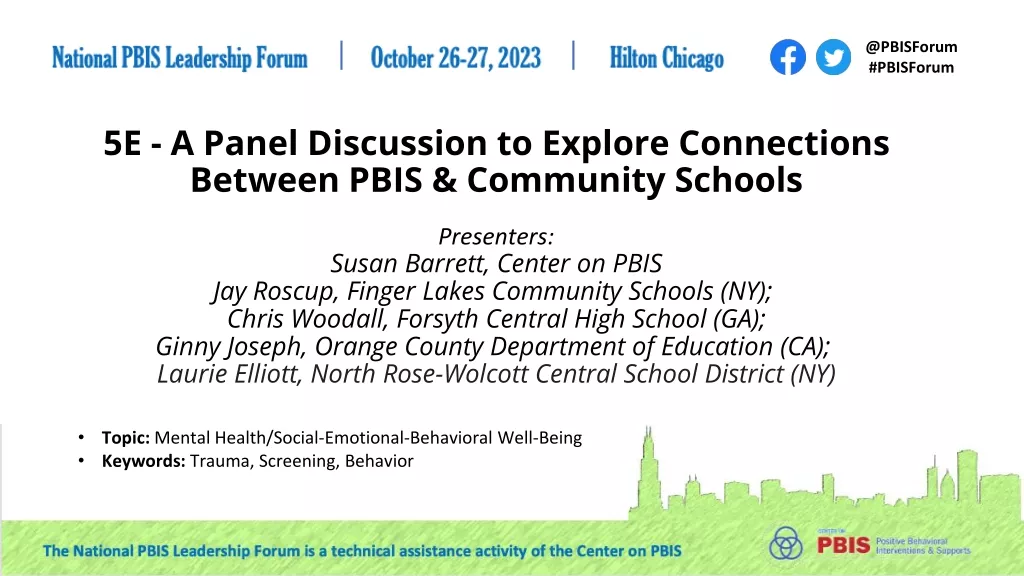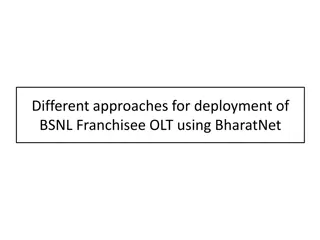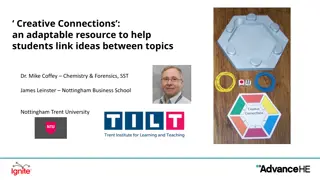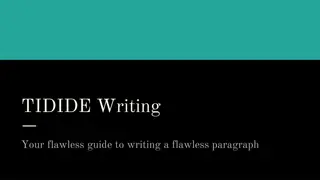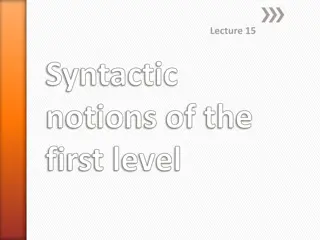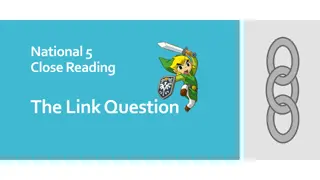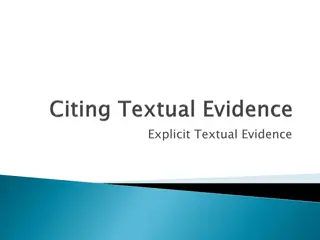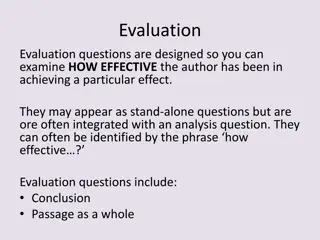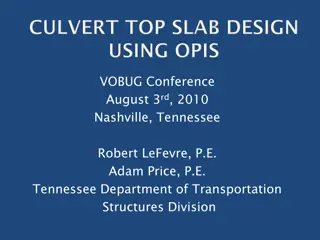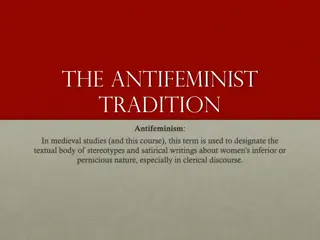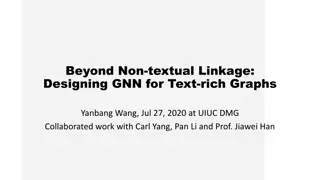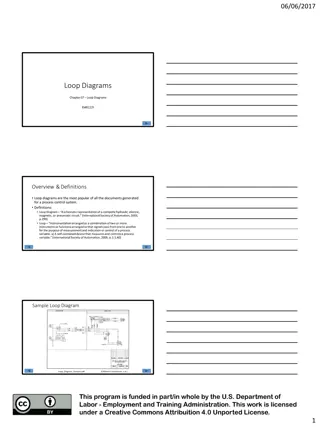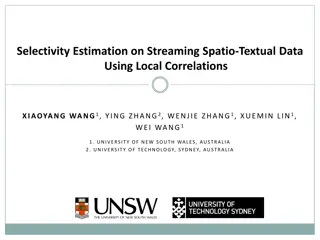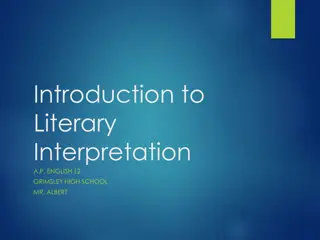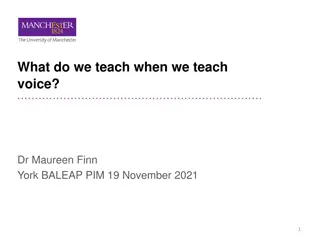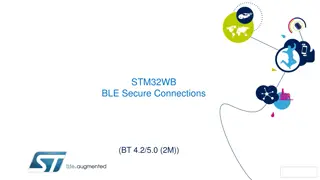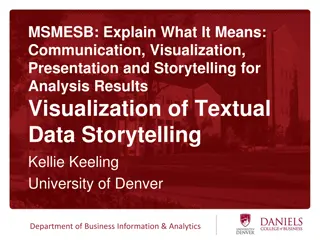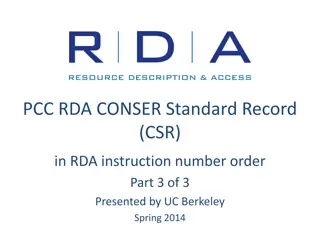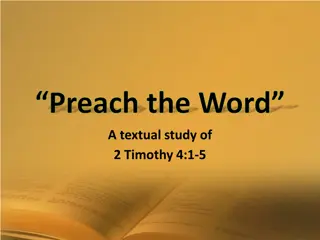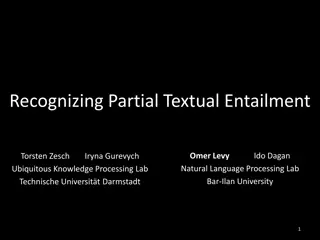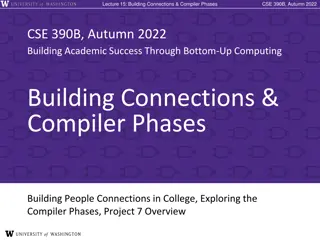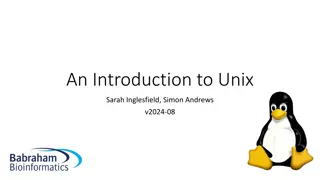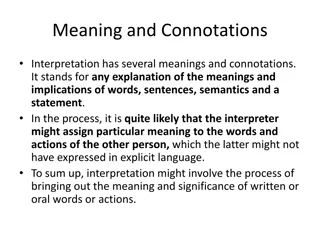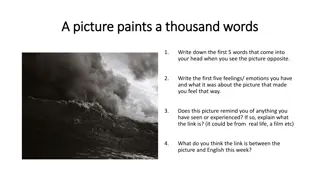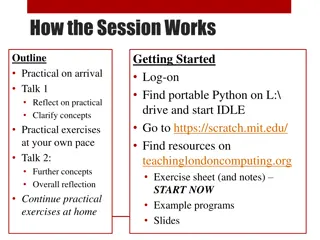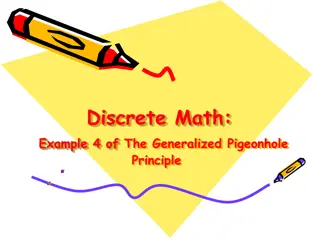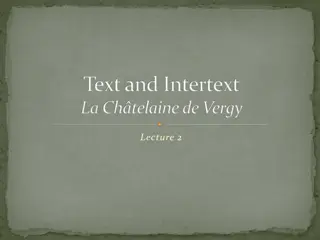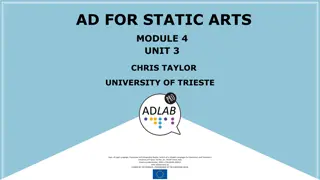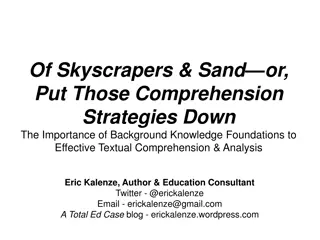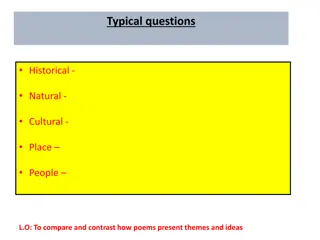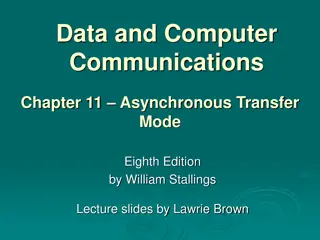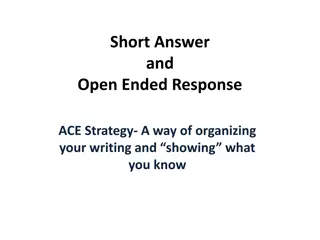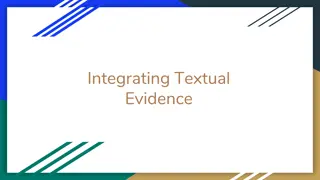Why You Need to Buy LinkedIn Connections
In the competitive landscape of professional networking, LinkedIn stands out as the premier platform for building meaningful connections, fostering professional relationships, and expanding your career opportunities. With millions of users worldwide, LinkedIn offers a vast network of professionals a
4 views • 2 slides
Exploring the Essence of Love and Relationships
Delve into the deep facets of love and relationships as we journey through understanding the beauty of connections, challenges to lifelong commitment, and distinguishing between being in love and true love. Reflect on traits important in a partner, analyze the aims of marriage for Catholics, and eng
1 views • 17 slides
Stronger Connections Grant
The Stronger Connections Grant information session aims to ground prospective grant applicants in the purpose and goals of the grant, review critical components of the Request for Application (RFA), and provide an overview of eligible districts and grant size. The session also emphasizes the importa
0 views • 23 slides
Exploring Connections Between PBIS and Community Schools
Join the panel discussion to explore the connections between Positive Behavioral Interventions and Supports (PBIS) and Community Schools, focusing on mental health, social-emotional-behavioral well-being, trauma, screening, and behavior. Learn from presenters from New York, Georgia, and California a
2 views • 22 slides
Different Approaches for Deployment of BSNL Franchisee OLT using BharatNet
Explore various deployment approaches for BSNL Franchisee OLT using BharatNet, including connectivity setups, configurations, and possibilities like Block/GP level connections, partner OLT cascading, and GP Level connections through BharatNet ONTs. Each approach offers unique benefits and considerat
5 views • 9 slides
‘Creative Connections’: an adaptable resource to help students link ideas between topics.
This presentation showcases "Creative Connections," an adaptable resource designed to help students link ideas between topics in education. Developed by Dr. Mike Coffey from Chemistry & Forensics and SST James Leinster from Nottingham Business School at Nottingham Trent University, this resource aim
2 views • 20 slides
Exploring Close Reading and Vocabulary in "St. Lucy's Home For Girls Raised by Wolves
Dive into a lesson agenda focusing on close reading, vocabulary building, and textual analysis of the book "St. Lucy's Home For Girls Raised by Wolves" by Karen Russell. Discover how authors use specific words to evoke a sense of place, annotate connections in the text, and explore unique vocabulary
3 views • 59 slides
Best New Connections in Ravensdale
Are you looking for the Best New Connections in Ravensdale? Then contact Charlton Power Pty Ltd. They specialise in providing top-notch electrical solutions for residential, commercial, and industrial clients. From switchboard upgrades and private pole installation to new connections their skilled t
0 views • 6 slides
Mastering Topic Sentences and Textual Evidence in Academic Writing
Learn how to craft effective topic sentences for your paragraphs, serving as mini-theses and providing a clear roadmap for your writing. Understand the importance of inference and textual evidence to support your ideas with relevant quotes and facts. Enhance your academic writing skills by mastering
0 views • 20 slides
Syntactic Notions of the First Level in Linguistics
In this lecture, the syntactic notions of the first level in linguistics are discussed, focusing on word groups, simple sentences, and the essential features of actual division. The different types of syntagmatic groupings of words, such as notional words, functional words, and their combinations, a
1 views • 19 slides
Understanding Links in Textual Content
Learn how to identify and analyze links between ideas in a text by examining how specific sentences provide connections. Follow a structured approach of quoting, explaining, and analyzing words that link backwards and forwards to establish a clear understanding of the text's coherence.
2 views • 21 slides
Mastering Explicit Textual Evidence in Reading Comprehension
Enhancing reading comprehension by utilizing explicit textual evidence to support ideas and opinions about the text. Learn how to clearly state ideas, specify text references, and comment on evidence to bolster your interpretations effectively.
0 views • 15 slides
Analysis of Evaluation and Conclusion Questions in Textual Analysis
Evaluation and Conclusion questions play a crucial role in assessing the effectiveness of an author in achieving specific effects and summarizing key points in a passage. These types of questions are commonly found in textual analysis tasks to evaluate the success of conveying ideas and themes. Eval
0 views • 9 slides
Modern Culvert Design Innovations in Tennessee's Transportation Infrastructure
Explore the evolution of culvert design in Tennessee, from the shift from moment connections to shear connections, adoption of AASHTO standards for federal funding compliance, and the utilization of pinned connections for efficient design and modeling in Opis and Excel spreadsheets.
4 views • 71 slides
Unveiling the Antifeminist Tradition: Ideological Roots, Textual Sources, and Female Nature
Explore the antifeminist tradition in medieval studies through a deep dive into its ideological roots, main textual sources, and portrayal of female nature. Discover how stereotypes and satirical writings about women's perceived inferiority have persisted throughout history, informed by clerical, in
0 views • 9 slides
Enhancing Graph Neural Networks for Text-rich Graphs
Designing GNNs for text-rich graphs involves considering both textual and non-textual linkage information among entities, such as papers, webpages, and people. Utilizing structural information beyond citation networks and exploring latent textual linkages are key challenges. Previous work has focuse
0 views • 33 slides
Overview of Loop Diagrams in Process Control Systems
Loop diagrams are essential documents in process control systems, providing schematic representations of hydraulic, electric, magnetic, or pneumatic circuits. They detail instrumentation arrangements, signal connections, power connections, and termination information. Guidelines and standards for cr
1 views • 5 slides
Selectivity Estimation on Streaming Spatio-Textual Data Using Local Correlations
This research focuses on efficient selectivity estimation on streaming spatio-textual data by incorporating local correlations. It addresses the challenge of estimating the number of objects in a query region with specific keywords in real-time. The study proposes novel approaches like ASP-tree and
0 views • 29 slides
Analyzing Texts Using Inductive Reasoning in Literary Interpretation
Utilizing inductive reasoning in literary interpretation involves examining specific details within a text to develop a debatable thesis statement supported by trends, patterns, and connections found in the material. This analytical approach requires a methodical breakdown of a writer's techniques t
0 views • 12 slides
Understanding Voice in Academic Writing: A Comprehensive Overview
Delve into the nuanced concept of voice in academic writing through a discussion of its definitions, classroom implications, evaluation aspects impacted by identities, and the importance of writer ownership. Explore the complex interplay of textual and non-textual elements shaping writer identity. C
0 views • 27 slides
STM32WB BLE Secure Connections Overview
This detailed content provides insights into the secure connections in STM32WB BLE devices, covering aspects such as BLE security methods, encryption techniques, pairing processes, key distribution, and security modes and levels. It emphasizes the use of Long Term Keys (LTK), Diffie-Hellman key exch
0 views • 12 slides
Effective Communication and Visualization Techniques for Analyzing Textual Data
Enhance your data analysis skills with effective communication, visualization, presentation, and storytelling techniques. Discover how to analyze textual data through word/phrase frequencies, collocations, and clustering. Explore tools for text processing and natural language processing, such as Exc
0 views • 21 slides
Cataloging Rules and Processes for Textual Resources in RDA
Learning objectives and training provided by UC Berkeley in Spring 2014 on applying the CONSER Standard Record and RDA instructions to describe textual serials and integrating resources in various formats. The acronym review covers core elements and differences between AACR2 rules/AACR2 version of C
0 views • 44 slides
A Textual Study of 2 Timothy 4:1-5
In this textual study of 2 Timothy 4:1-5, the solemn charge of preaching the Word is emphasized, emphasizing the importance of proclaiming religious truths and principles to prepare for Jesus' return and eternity. The passage highlights the gravity and seriousness of preaching, urging preachers to f
1 views • 31 slides
Understanding Textual Entailment in Natural Language Processing
This collection of images showcases various aspects of textual entailment, where one text can entail another. It explores the relationship between statements like "muscles move bones" and "muscles generate movement". Different levels of entailment are depicted, culminating in complete textual entail
0 views • 72 slides
Building Connections and Compiler Phases in College: Networking Strategies
Discover the benefits of building connections in college through networking strategies like reaching out to professors, TAs, and peers. Learn the importance of networking, ways to get involved on campus, and how to leverage your connections for personal and academic growth.
0 views • 39 slides
Building Friendships Where You Live: Pathways to Inclusive Connections
Understanding the importance of community connections for people with disabilities, this resource promotes friendship beyond typical relationships. It explores the benefits of friendships, strategies for meaningful connections, and the impact of support in fostering friendships regardless of locatio
0 views • 20 slides
Understanding Unix: Fundamentals and Connections
Explore the basics of Unix operating systems, terminology, types of Linux installations, and connecting to remote Linux machines. Learn about key concepts such as local vs. remote connections, SSH connections using passwords and keys, and tools like PuTTY for remote access.
0 views • 78 slides
Unveiling the Art of Interpretation: From Textual Meanings to Contextual Significance
Interpretation delves into the meanings and implications of words, sentences, and classical texts, bringing out their significance. It involves decoding complex ideas, separating temporal and perennial thoughts, and revealing contemporary relevance. Different approaches like textual and contextual a
0 views • 18 slides
Explore Reflections Through Images and Words
Delve into the deep connections between pictures and emotions, perspectives, and meanings expressed through language. Enhance your understanding of visual and textual literacy.
0 views • 6 slides
Transitioning from Scratch to Python: A Practical Approach for Learning Textual Programming
Explore the transition from visual programming in Scratch to textual programming in Python using Turtle Graphics. Engage in practical exercises, clarify key concepts, and reflect on the challenges and progress in learning core programming concepts. Utilize resources from TeachingLondon Computing to
0 views • 21 slides
Minimum Direct Connections to Achieve Simultaneous Access
In a computer science laboratory with 15 workstations and 10 servers, the minimum number of direct connections needed to ensure that any set of 10 or fewer workstations can simultaneously access different servers is determined using the Generalized Pigeonhole Principle. By strategically connecting w
0 views • 5 slides
Exploring Intertextuality in Medieval Manuscripts
Delve into the concept of intertextuality in medieval manuscripts, focusing on the Châtelaine de Vergy. Discover how manuscript culture and mouvance shape textual mobility and authorship perceptions. Uncover key points on manuscript variations and the dynamic nature of medieval works. Critically ex
0 views • 16 slides
Linguistic and Textual Features of Ad in Static Arts
Explore the linguistic and textual features of advertising in static arts, focusing on the use of present tense, short declarative sentences, and vivid vocabulary. Understand how cohesion, repetition, and non-finite verbs contribute to the impact of museum advertisements compared to general ads.
0 views • 23 slides
Importance of Background Knowledge for Effective Textual Comprehension
Understanding the significance of background knowledge in enhancing textual comprehension is crucial for education. The article emphasizes the misinterpretation of Bloom's Taxonomy and the need to recognize reading as more than just a skill. It highlights the importance of foundational knowledge in
0 views • 25 slides
Understanding Textual Relations in Language Teaching
Explore different types of textual relations such as lexical cohesion, grammatical cohesion, and more in language teaching. Learn how sentences are related through vocabulary, synonyms, general terms, and pronouns to enhance understanding and coherence in writing. Examples from the Grasping Textual
0 views • 23 slides
Exploring Poetry Analysis and Comparison Techniques
Dive into the realm of poetry analysis by comparing and contrasting how different poems present themes and ideas. Discover strategies for examining language, form, and structure used by poets to convey meanings and effects. Enhance your understanding of textual contexts and learn how to craft inform
0 views • 23 slides
Understanding Asynchronous Transfer Mode (ATM) in Data and Computer Communications
Asynchronous Transfer Mode (ATM) is a packet transfer technology that supports multiple logical connections over a single physical interface. It uses fixed-sized packets called cells for data transfer. ATM bears similarities to packet switching and offers streamlined packet transfer with minimal err
0 views • 46 slides
Effective Writing with the ACE Strategy
Unlock the power of the ACE strategy to enhance your writing by answering questions with restated prompts, citing textual evidence, and providing detailed explanations. Understand the importance of textual evidence and learn how to structure your responses effectively to convey your understanding co
0 views • 16 slides
Mastering the Art of Integrating Textual Evidence
When incorporating textual evidence into your writing, it is crucial to use quotes strategically, ensuring they enhance your argument. By leading readers into and out of quotes seamlessly, and blending them into your sentences creatively, you can maintain the integrity and impact of the original tex
0 views • 8 slides


